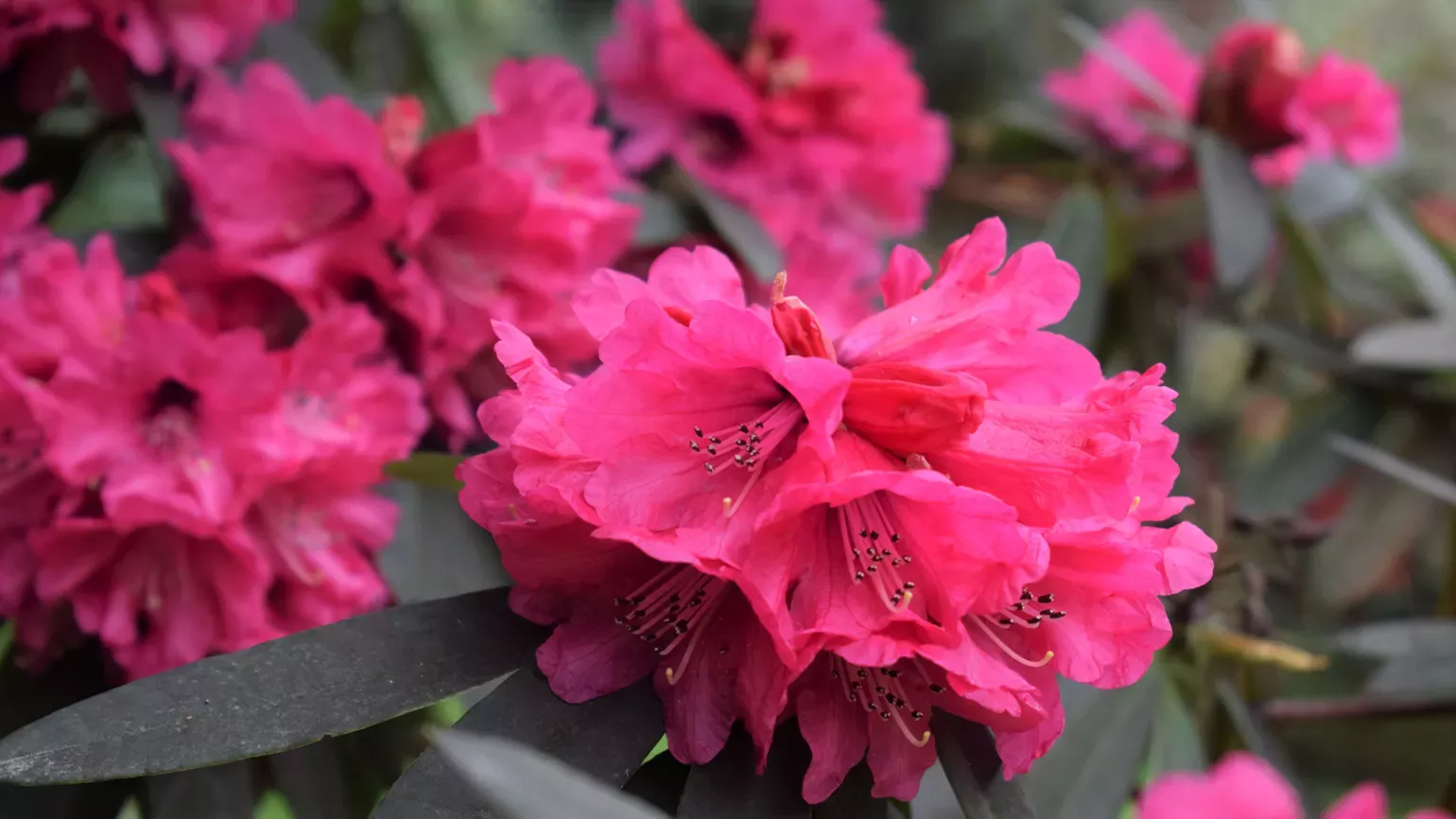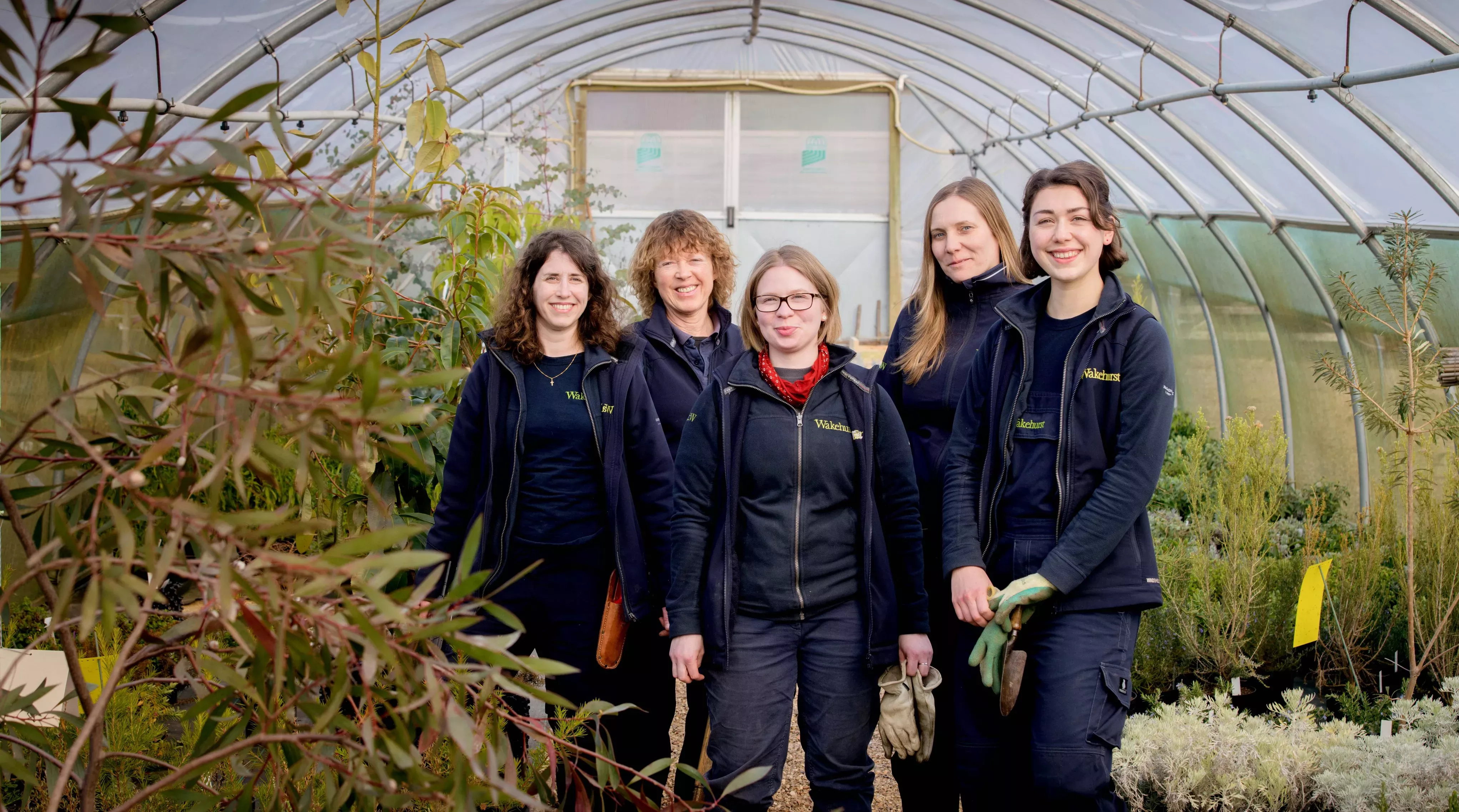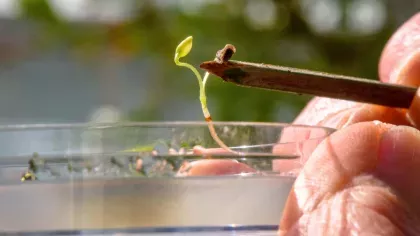25 March 2019
Rhododendrons: Wakehurst's hidden treasure
Walk through Westwood Valley and Asian Heath Garden and your eyes will find a seasonal feast colour in the magnificent Rhododendron collections.

Westwood Valley and the Asian Heath Garden are home to the Rhododendron collections at Wakehurst.
Our gardens have over 1800 accessions of Rhododendron (with 1200 more at Kew Gardens).
Over 300 of those are threatened, so we keep that collection safe by growing them here. What’s more, our collection is truly global with around 100 species from China, Japan, Bhutan, South Korea and more.

The Rhododendrons by historic plant hunters
We aren’t just a home to these beautiful collections.
Many of these species were originally discovered, named, bred or donated by our great historical plant hunters such as Frank Kingdon-Ward, George Forrest and Ernest Wilson. For example, Rhododendron mallotum is Red-Listed as Endangered in the Wild. It is notable for its deep red flowers in early spring, particularly stunning on a misty March morning.
Explore the valley and spot the black plant labels which display names of great plant hunters. The collections have been added to by Kew staff: watch out for the SICH collection code on the labels which indicate the expedition to Sichuan in Western China in more recent years.

Global status
The Rhododendron collection also holds global conservation significance, which is currently being rediscovered by the team at Wakehurst.
Did you know? Kew and Wakehurst combined have the second most important conservation collection in a botanic garden in the world. (2012 Rhododendron Red List)
Our expertise is so valued, that in 2017, we were invited to be part of the Global Conservation Consortium Rhododendron (GCCR); a group of global partners with the aim of “No more Rhododendron species become extinct”
We started “The Rhododendron Conservation Programme” at Wakehurst. This aims to unveil the hidden gems in the global significance of the collection whilst improving the taxonomy and labelling of the collection and ultimately undertaking conservation horticulture and propagation.


.jpg.webp?itok=FynjvxB6)
Rhododendron facts:
- The Rhododendron is actually a small tree and can live up to 100 years
- Rhododendrons can be epiphytes, meaning they collect their nutrients from their air, rather than underground.
- Some Rhododendron pollen can be poisonous.
- The national flower of Nepal is Rhododendron.
- Over 1000 species are known to exist
- The largest is Rhododendron arboreum in India measuring over 100ft tall.
What do we do about Rhododendrons?
The Plant Propagation and Conservation Unit (PPCU) are currently exploring the beautifully steep, heavily-planted areas of Westwood Valley and the Asian Heath Garden.
We are hunting down the rarest species in the collections to survey their health, take specimens for identification and propagation material to grow and share with other botanic gardens and institutes.
So far around 50 of the 300 accessions have been surveyed and herbarium vouchers taken. A horticultural taxonomist has been employed to start identifying and naming specimens, so that our collections are accurate and properly managed.
We then propagate and distribute plants and undertake controlled pollination to store seed in the Millennium Seed Bank (MSB); our underground vaults banking seeds in sub-zero temperatures.
Propagation
We have been busily propagating in our own nursery, taking hundreds of cuttings of over 20 Red-Listed endangered species to add to both our collection, and other UK botanic gardens.
Pollination
The final part of the jigsaw is to undertake controlled pollination to secure the individual collections in the MSB.
There has already been one successful controlled pollination and banking of Rhododendron nakaharai. As we grow the collection, we will have more materials to research storage and germination techniques.
Did you know? The Millennium Seed Bank has 80 Rhododendron species in its collection.
Our collections are continuing to evolve as we gather new plant material, propagate and preserve it in our various collections.



.jpg.webp?itok=oGunkOJO)